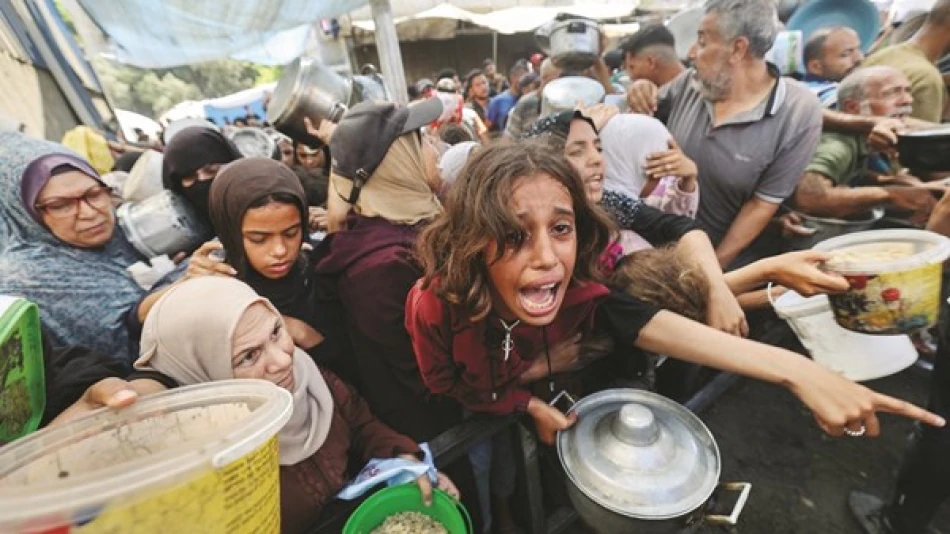
UNRWA Faces Funding Shortfall, Halts Aid to Gaza for 6 Months
Gaza Humanitarian Crisis Deepens as Aid Blockade Enters Seventh Month
The humanitarian catastrophe in Gaza has reached unprecedented levels as the UN Palestinian refugee agency UNRWA reports being blocked from delivering aid for six consecutive months, while Palestinian health authorities document 370 famine-related deaths, including 131 children. The crisis highlights the devastating impact of prolonged conflict on civilian populations and raises urgent questions about international humanitarian law enforcement.
Aid Organizations Sound Alarm Over Deteriorating Conditions
UNRWA announced via Facebook that families in Gaza have been left without basic necessities, with the agency unable to provide any assistance since the aid blockade began. The organization emphasized its readiness to deliver critical shelter supplies including mattresses, blankets, and tents, calling for an immediate lifting of restrictions.
The Palestinian Ministry of Health reported three new famine-related deaths in the past 24 hours alone. Since famine was officially declared in the territory on August 22, 92 people have died from hunger and malnutrition, including 16 children—a stark indicator of how quickly humanitarian crises can escalate when aid access is restricted.
International Red Cross Warns of Systemic Collapse
Hisham Muhanna, spokesperson for the International Committee of the Red Cross in Gaza, described the situation as catastrophic and worsening daily. He stressed the urgent need for a comprehensive agreement that would allow safe, continuous, and effective humanitarian support without obstacles.
The crisis extends beyond general food shortages to specialized needs that highlight the complexity of modern humanitarian disasters. Muhanna noted the lack of specialized foods for people with allergies, infant formula, and essential medications for chronic diseases and immunocompromised individuals—items that are often overlooked in emergency response planning but prove critical for vulnerable populations.
Shrinking Humanitarian Space
The Red Cross official revealed that most areas of Gaza are either under evacuation orders or direct Israeli military control, significantly reducing humanitarian operating space. This situation exemplifies a broader challenge facing aid organizations in active conflict zones, where access restrictions can render even well-funded relief efforts ineffective.
The organization's capacity to fulfill its mandate and provide basic humanitarian services continues to decline daily, reflecting a pattern seen in other prolonged conflicts where humanitarian infrastructure becomes increasingly degraded over time.
Legal and Ethical Implications
Muhanna emphasized that no party has justification or exemption from legal obligations under laws of war, which mandate civilian protection and humanitarian access. This statement underscores growing international concern about compliance with international humanitarian law, particularly regarding the protection of civilian populations and the facilitation of aid delivery.
The situation in Gaza represents a test case for international humanitarian frameworks developed after World War II. The systematic denial of aid access, combined with rising civilian casualties from preventable causes like malnutrition, raises questions about the effectiveness of existing international legal mechanisms in protecting non-combatants during armed conflict.
Broader Regional and International Context
The Gaza crisis occurs against a backdrop of increasing global humanitarian needs and shrinking access in conflict zones worldwide. Similar patterns of aid restriction have been documented in Syria, Yemen, and other conflict areas, suggesting a troubling normalization of using humanitarian access as a tool of warfare.
The international community's response to the Gaza situation may set important precedents for how humanitarian crises are addressed in future conflicts, particularly regarding the balance between security concerns and humanitarian obligations under international law.
Most Viewed News

 Layla Al Mansoori
Layla Al Mansoori






